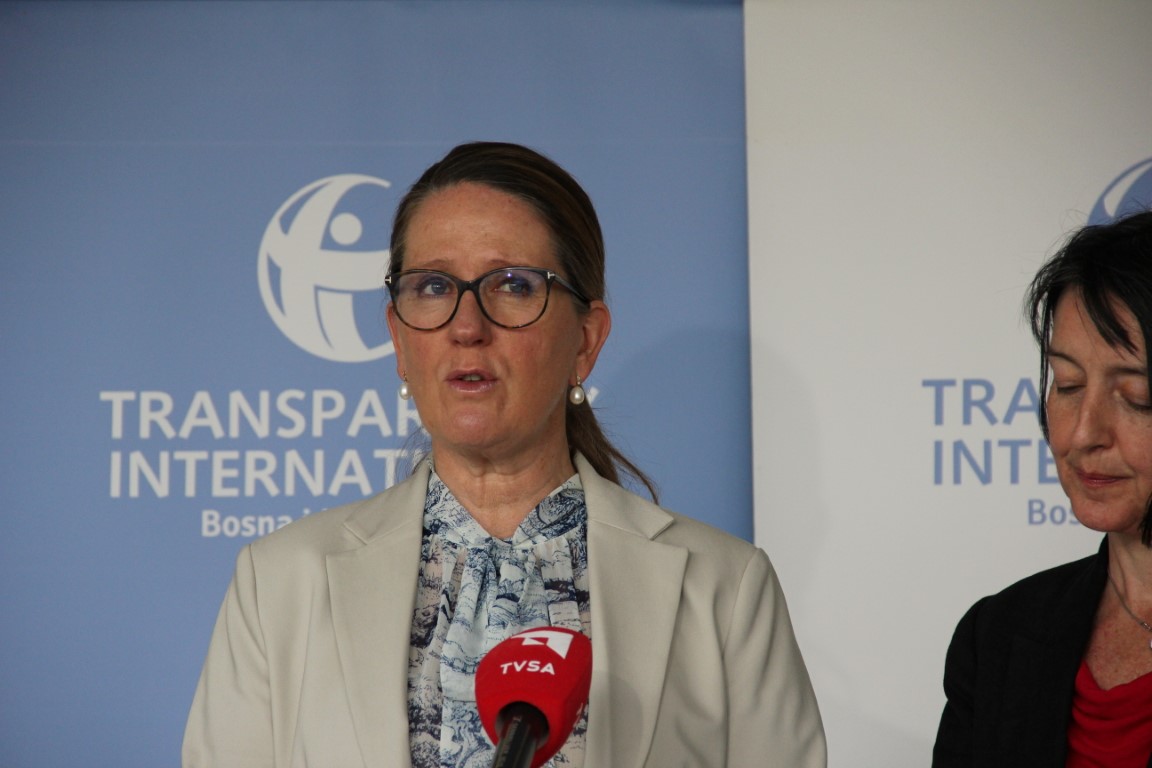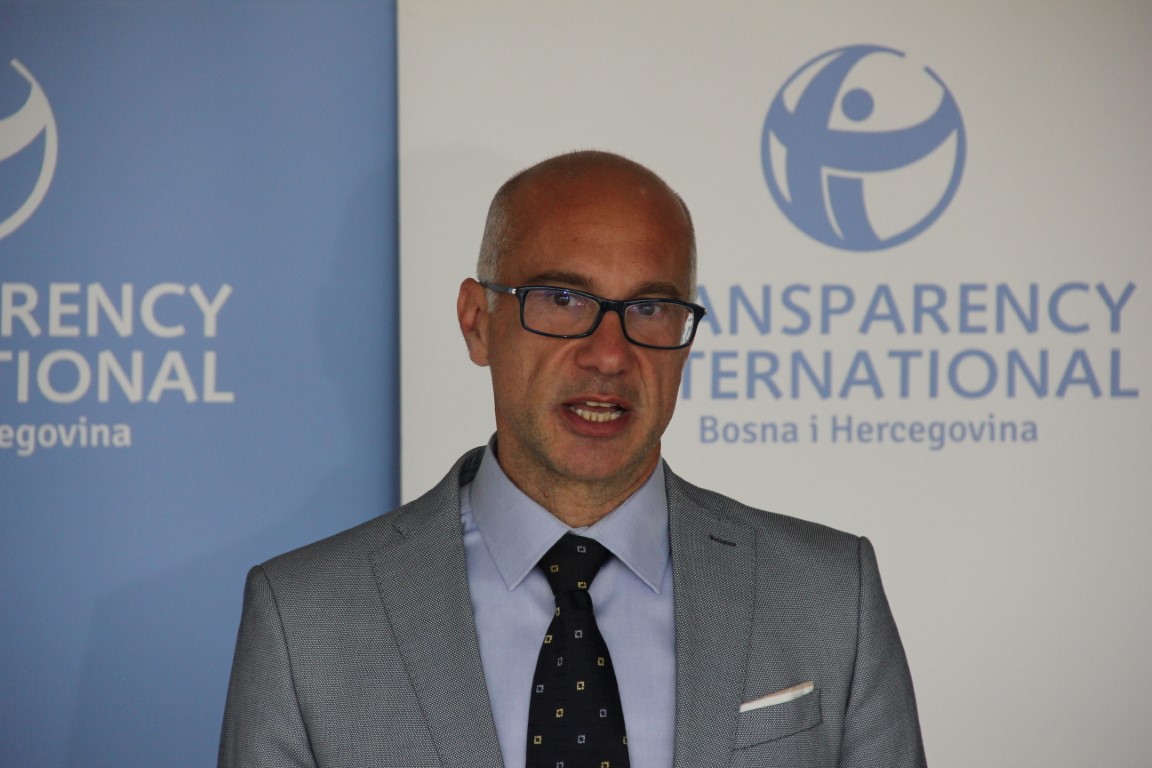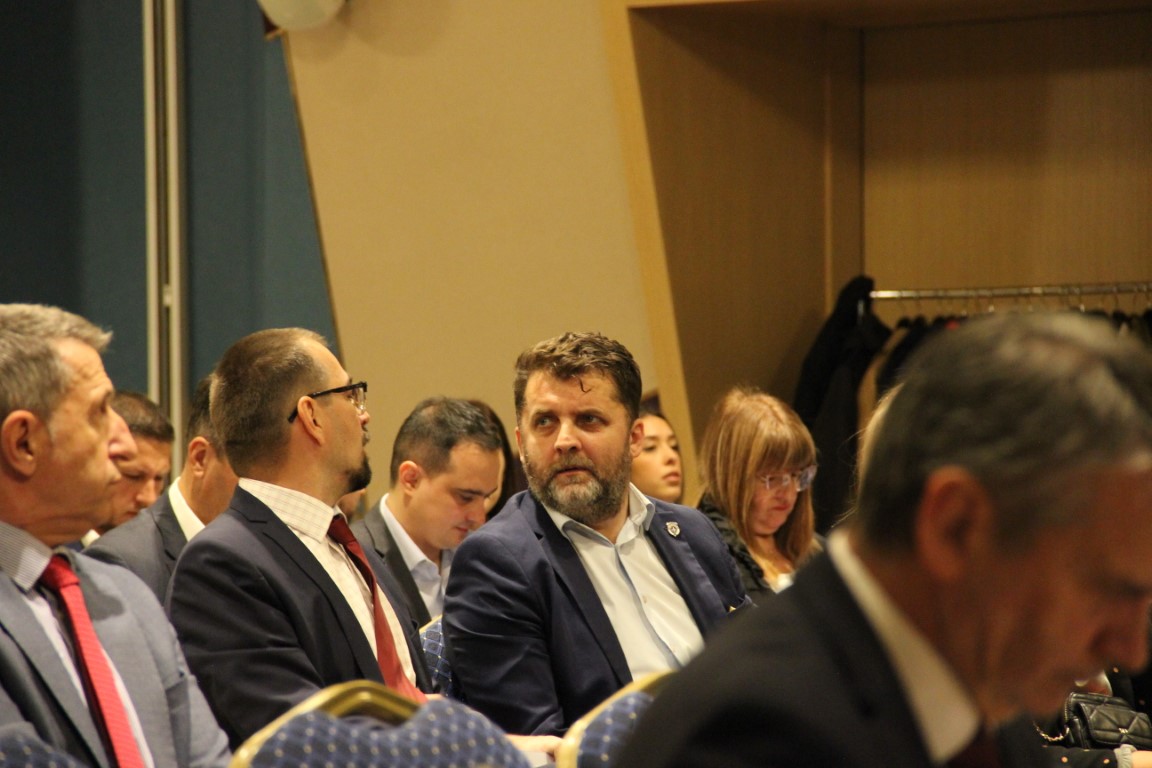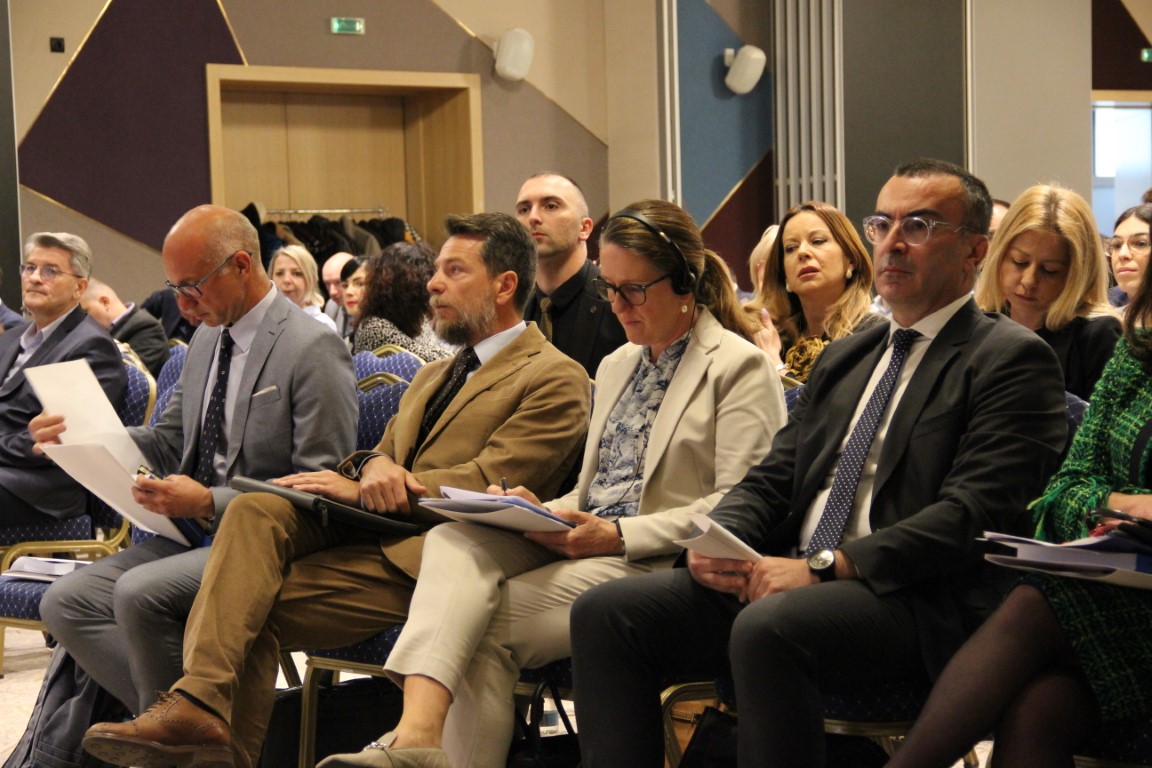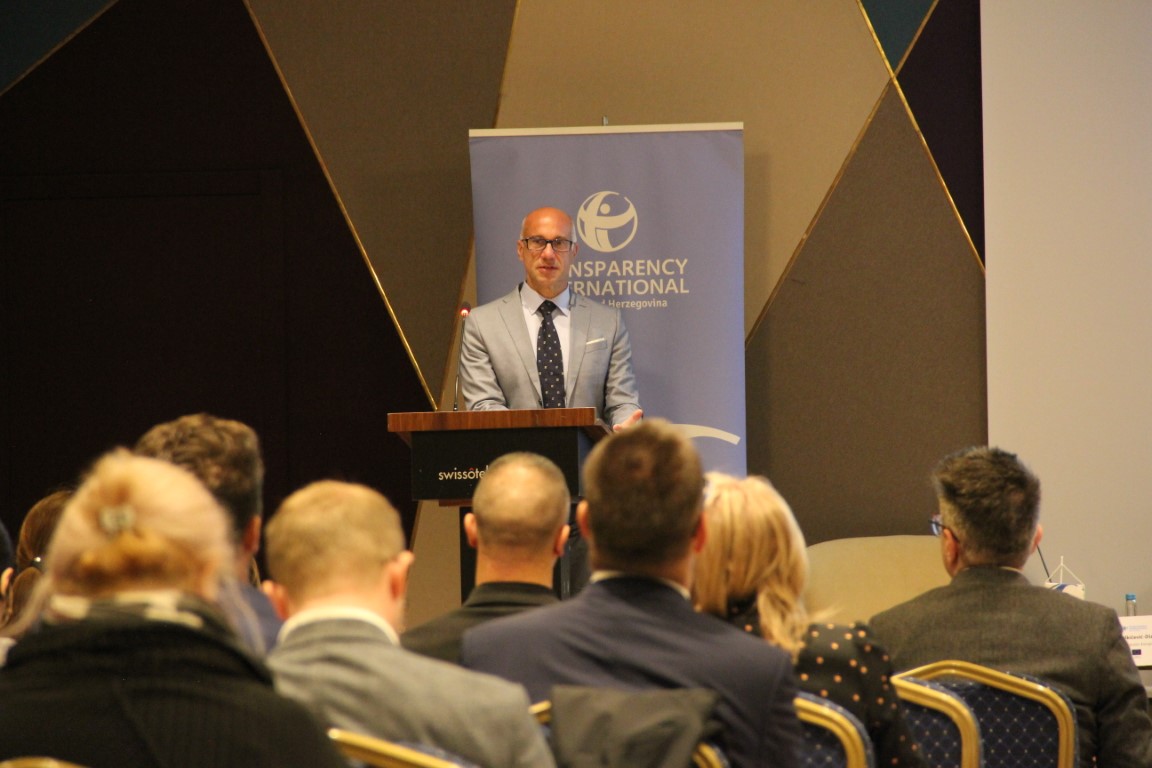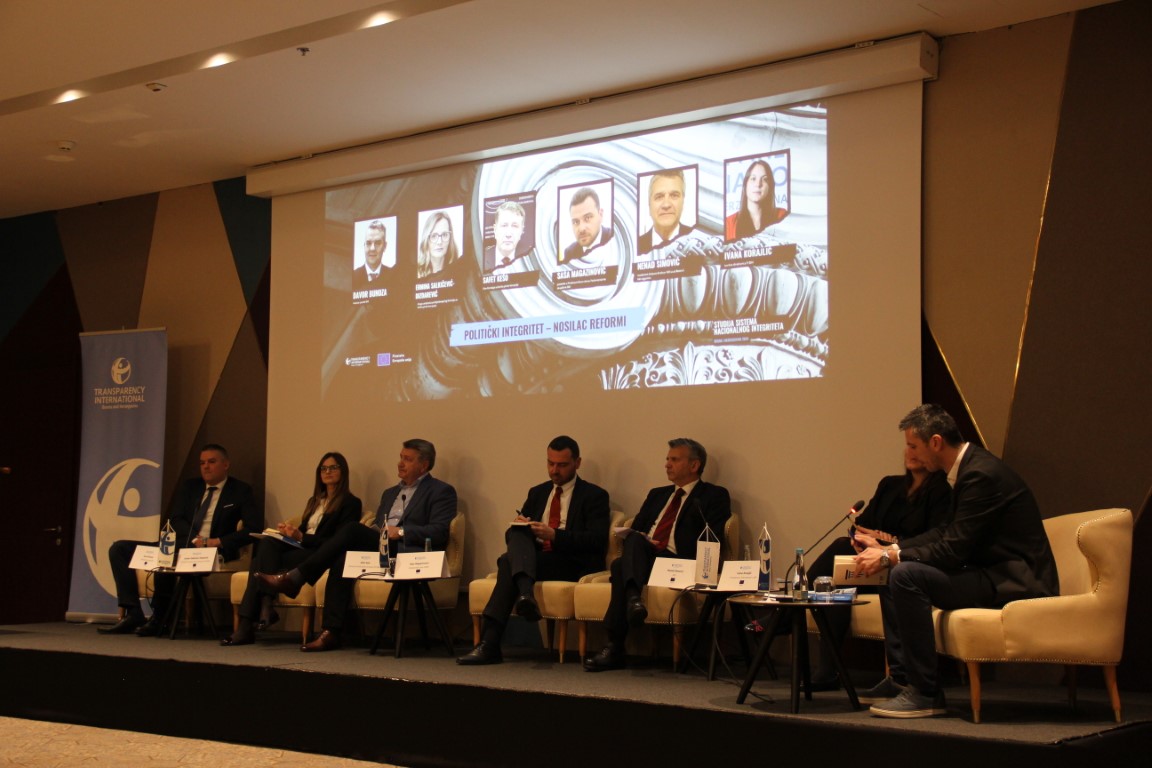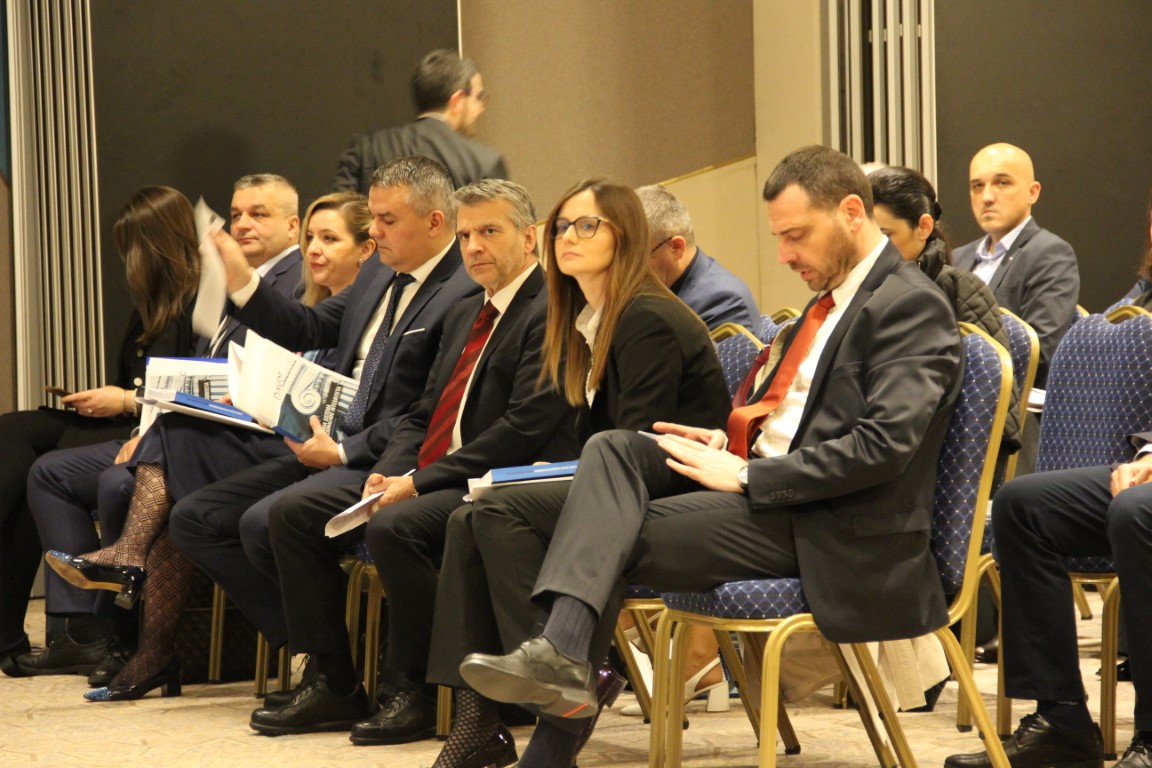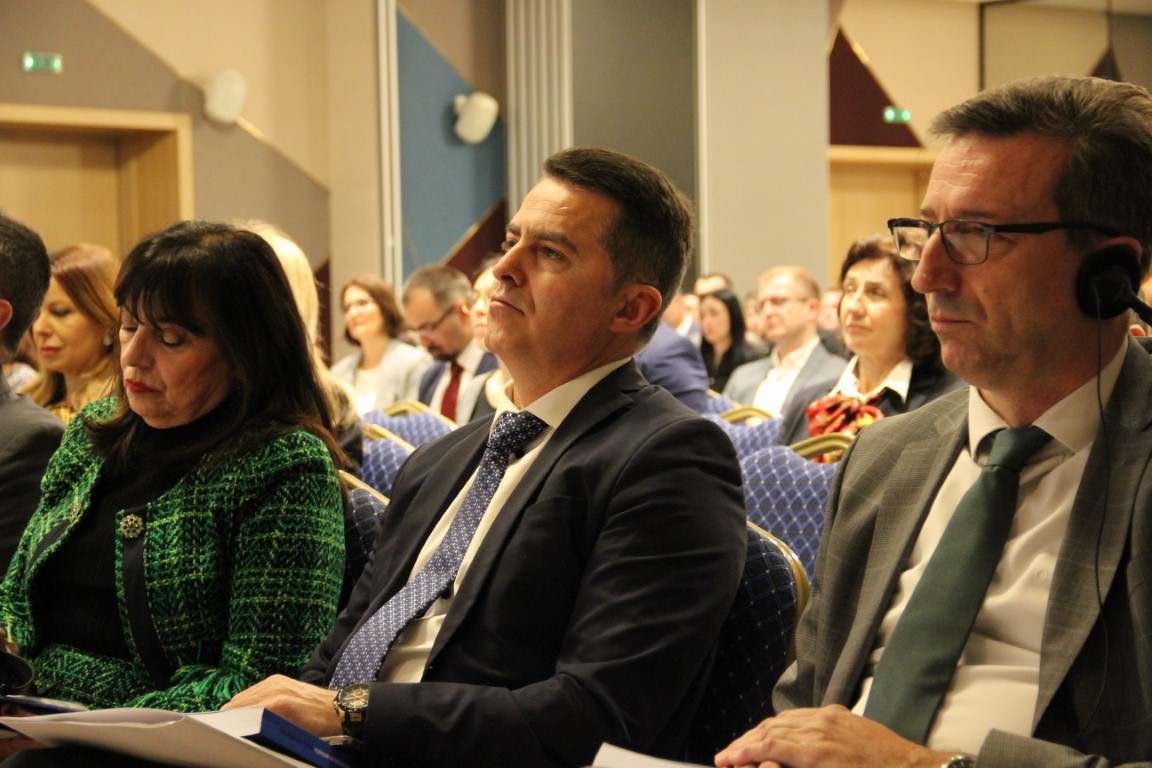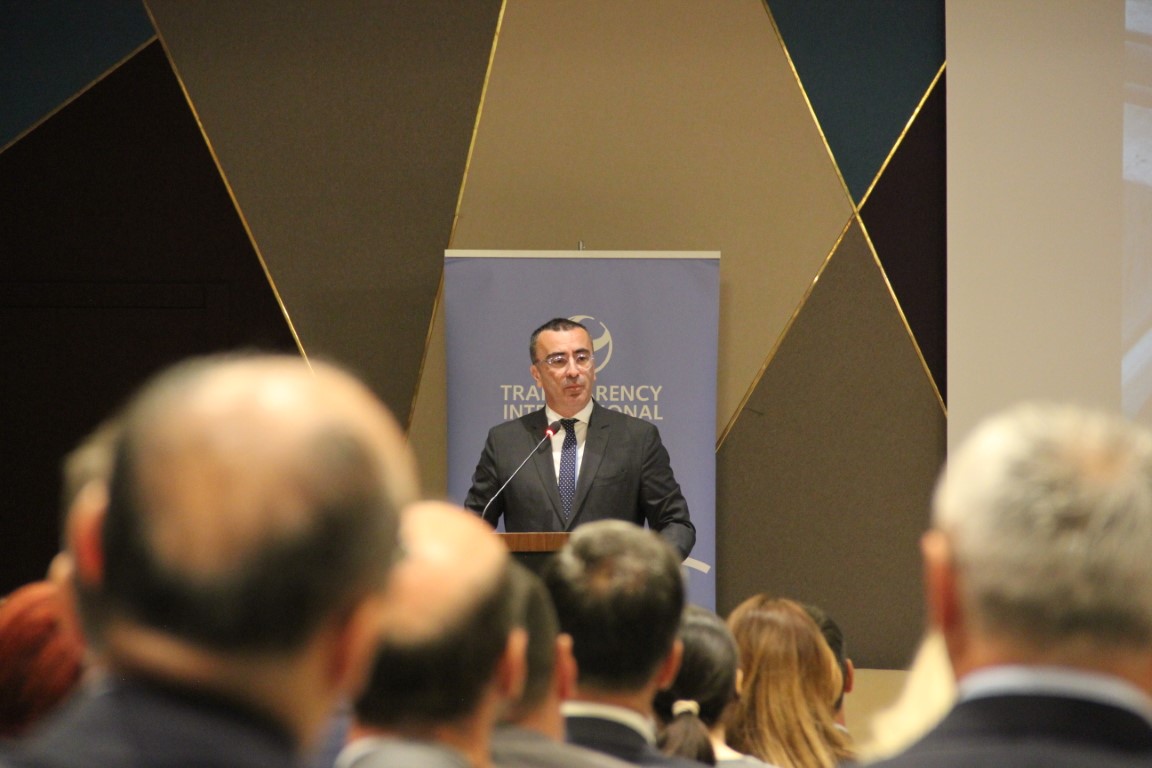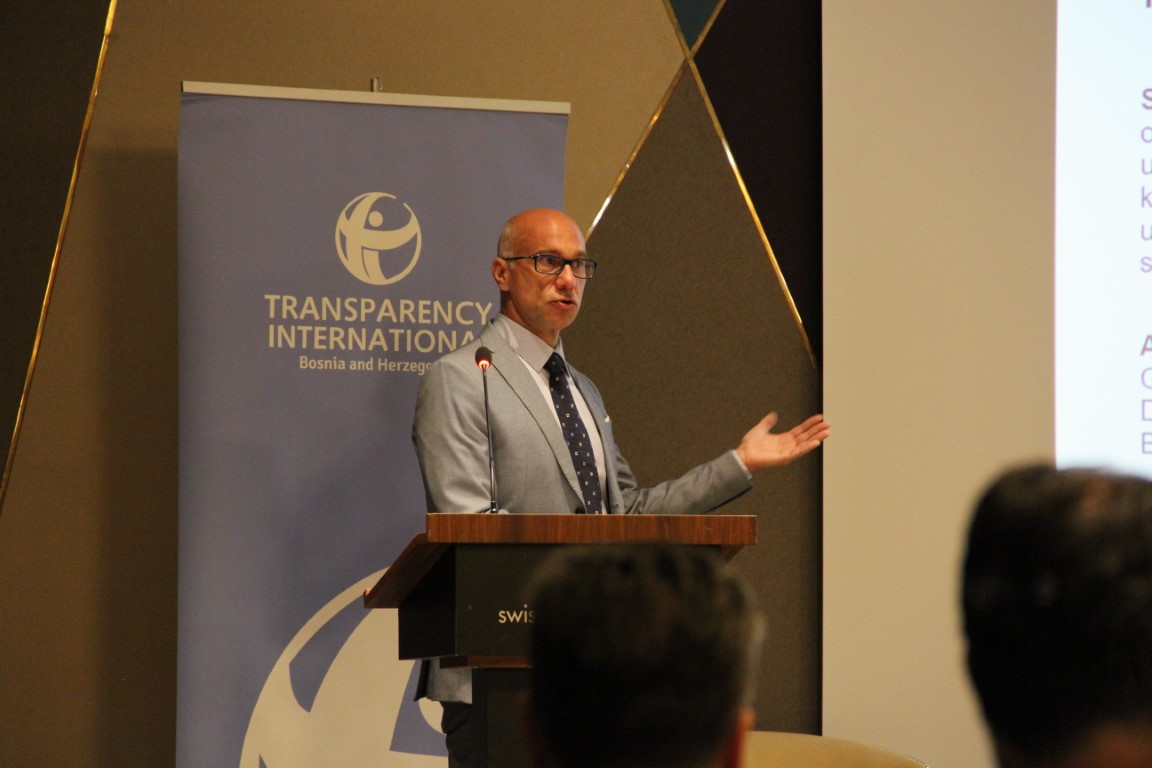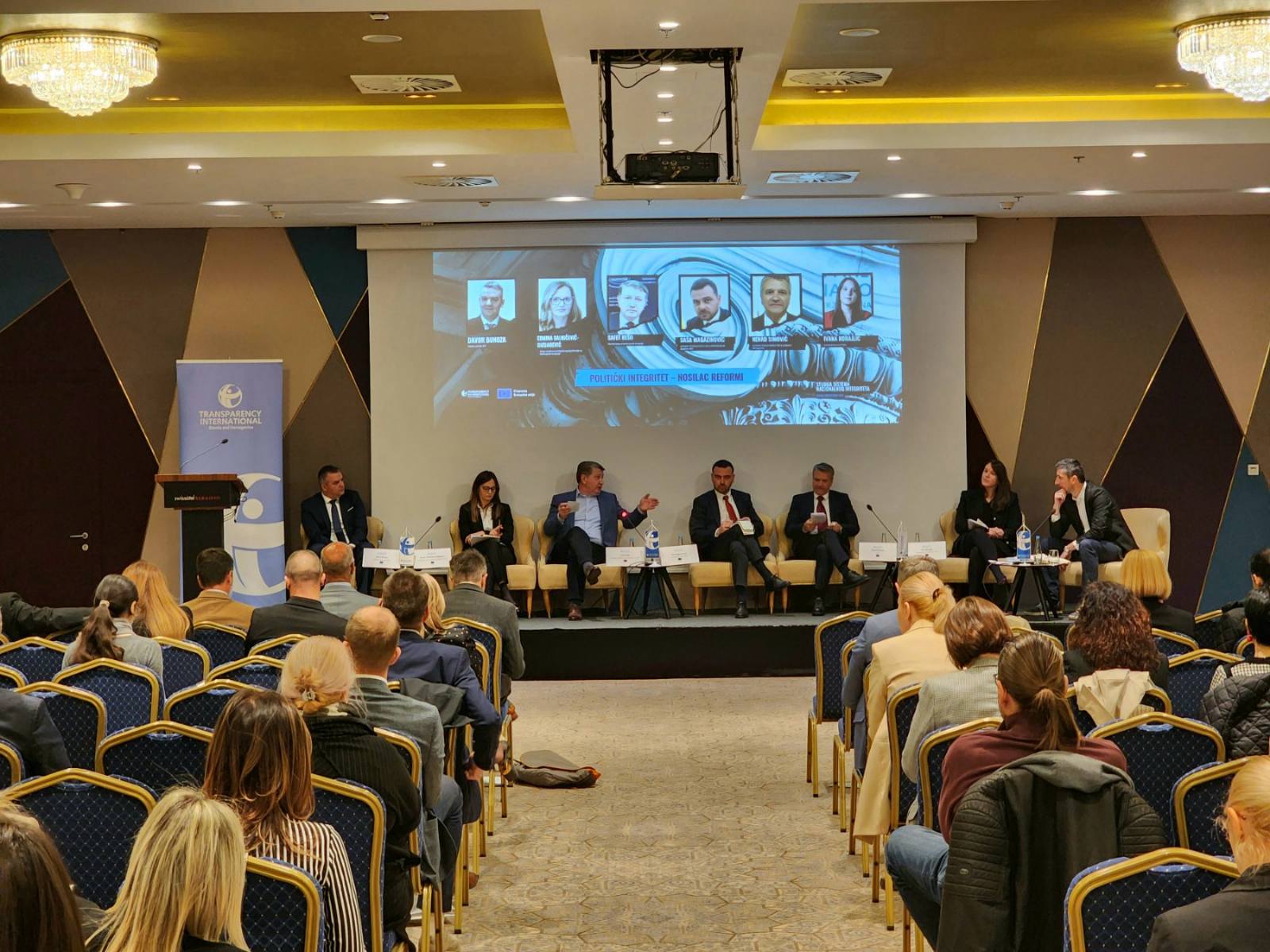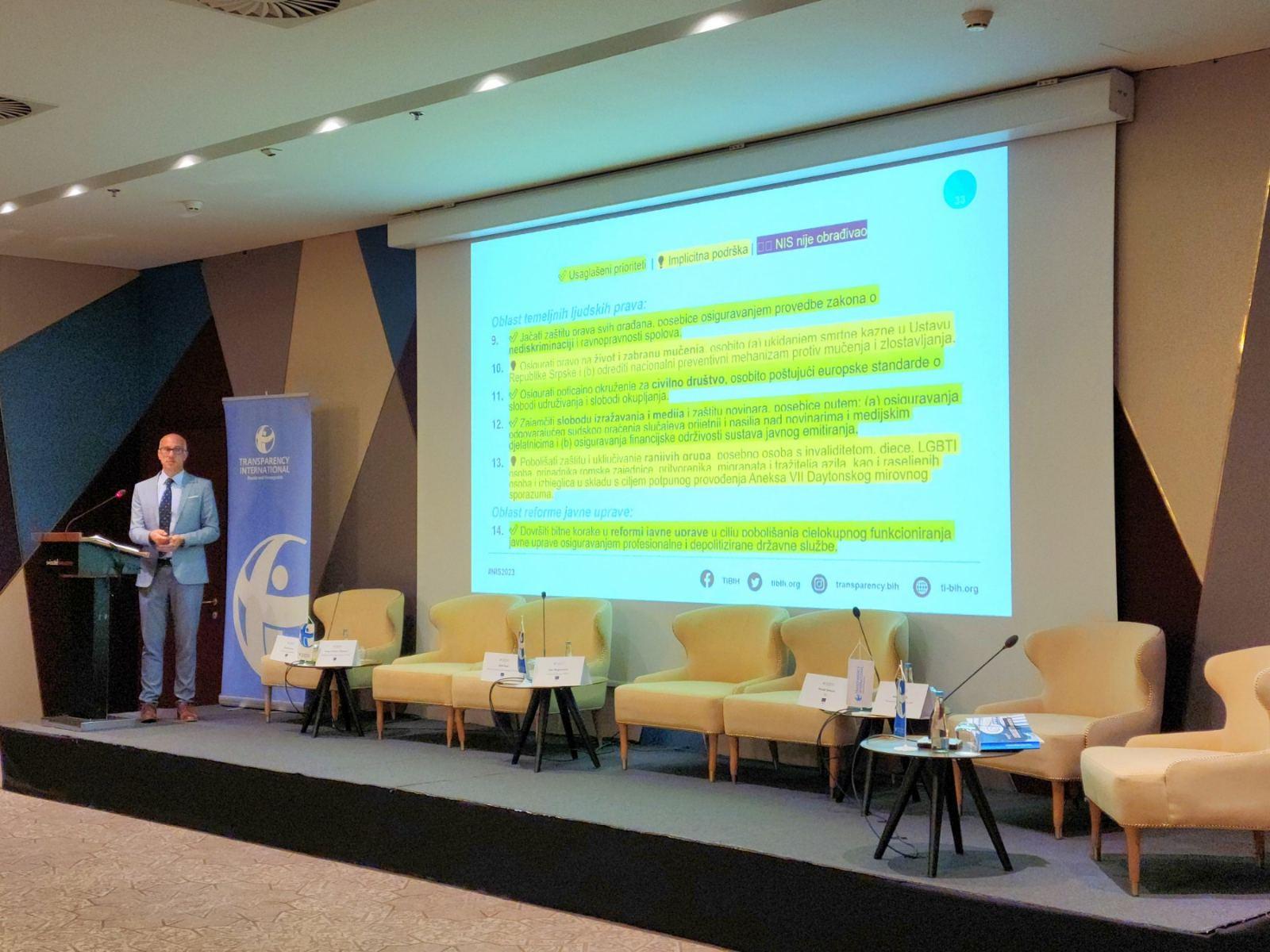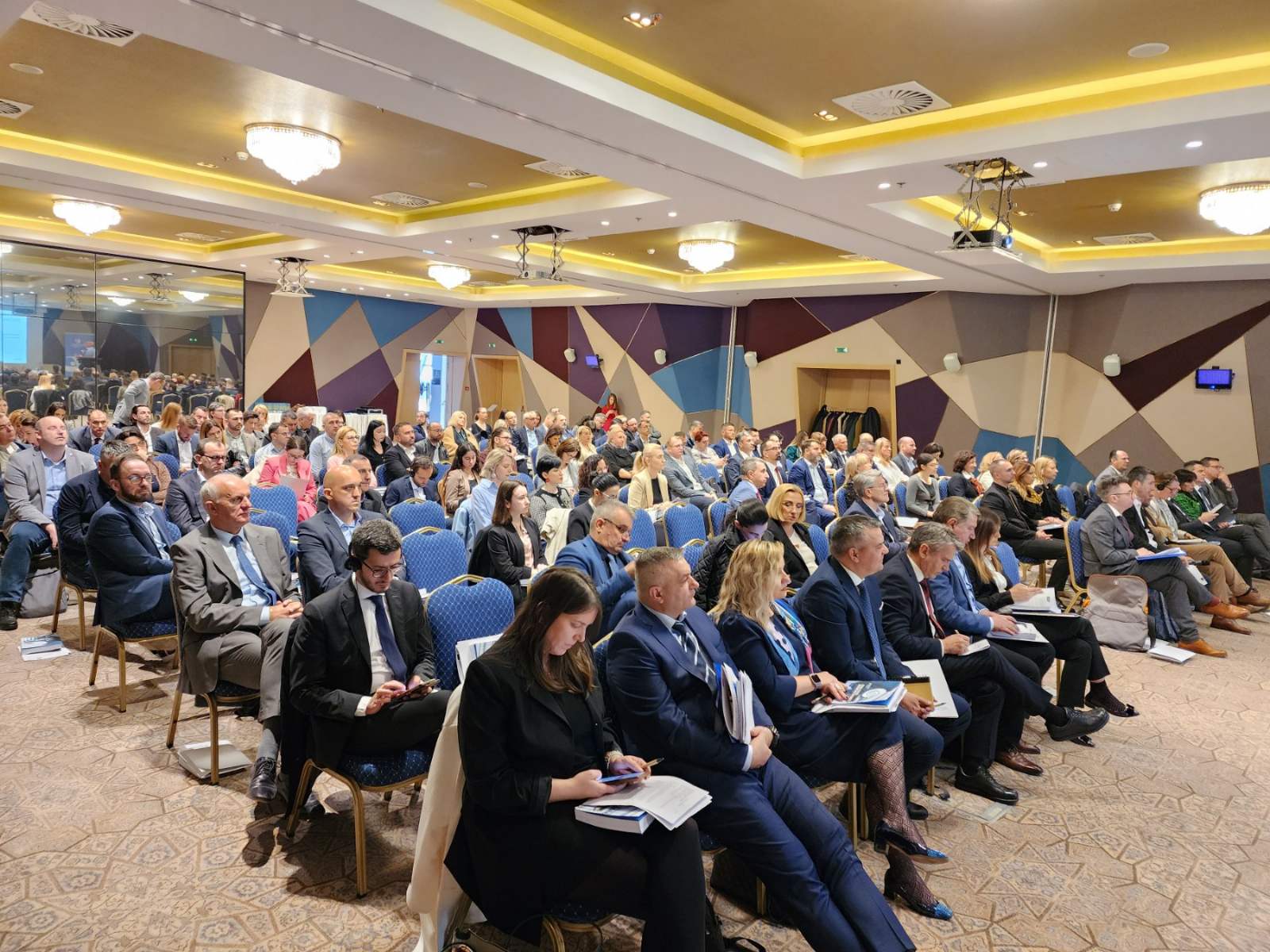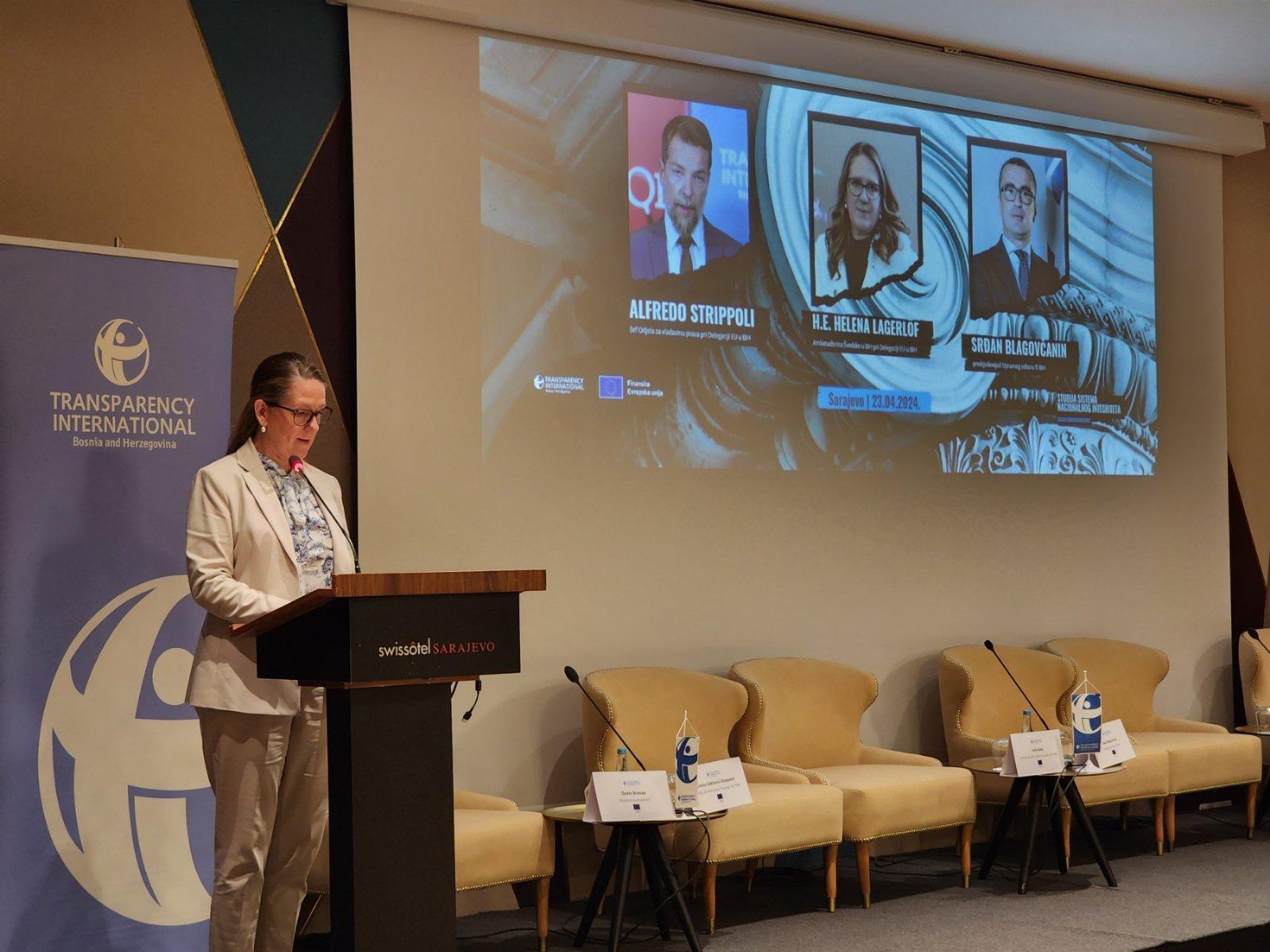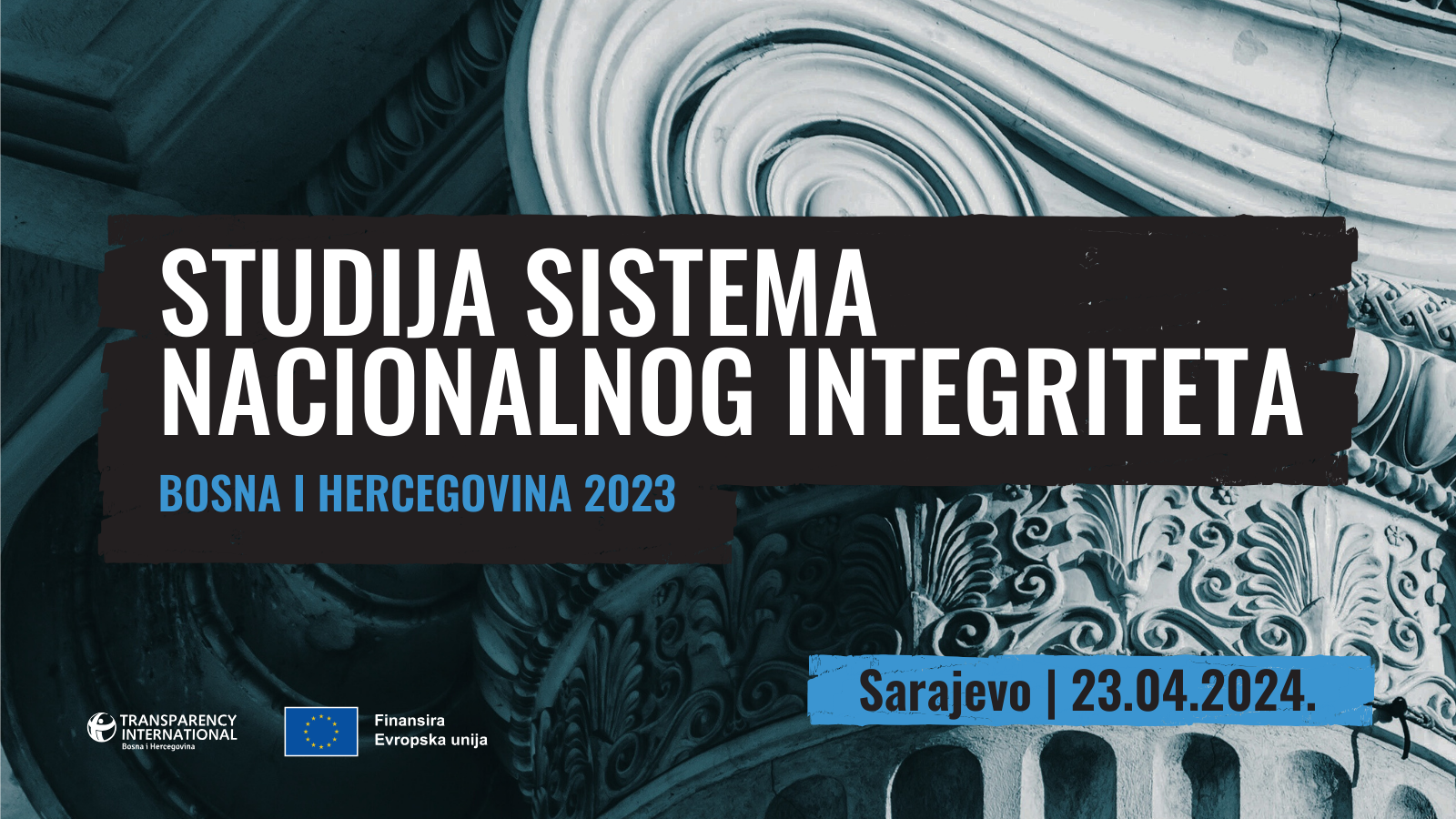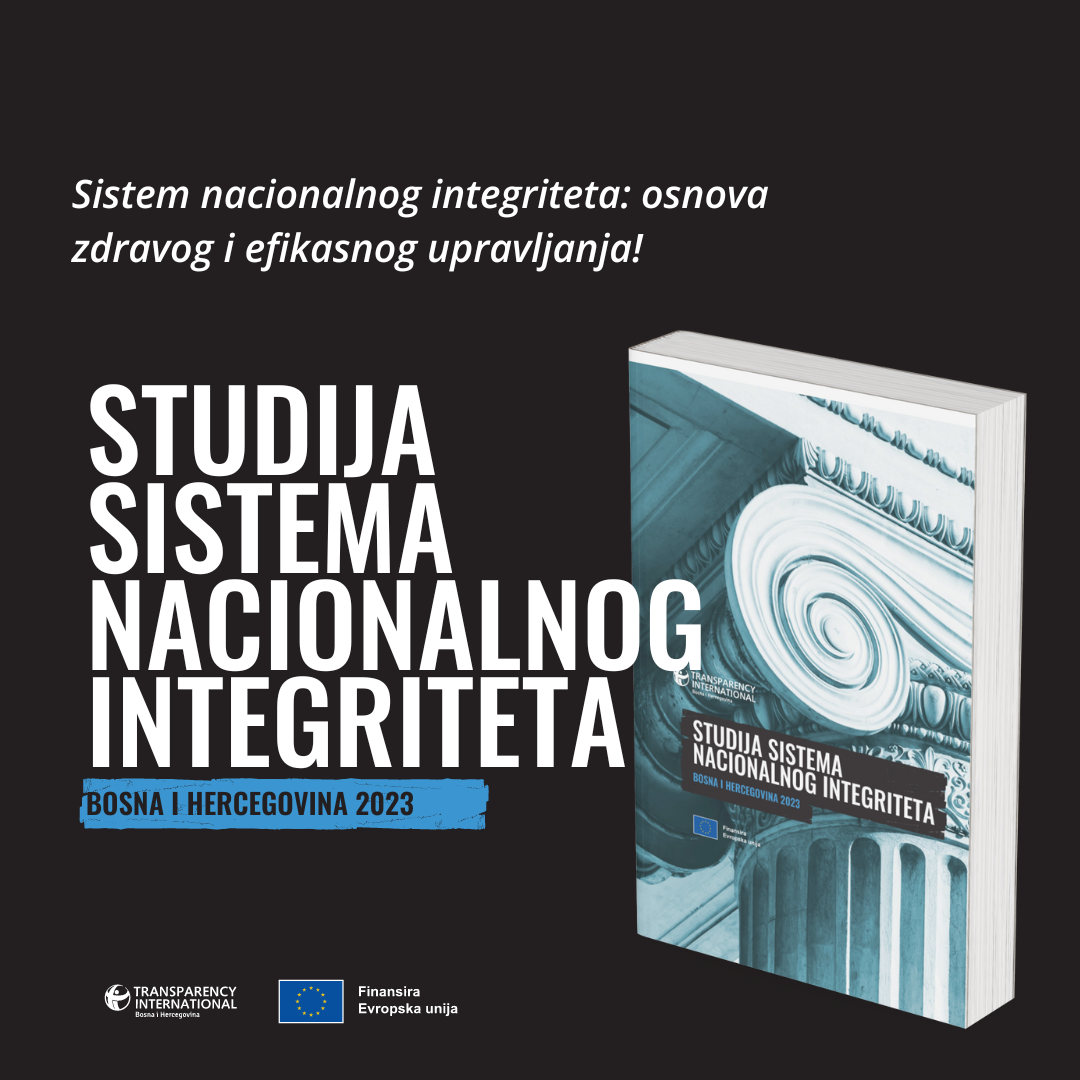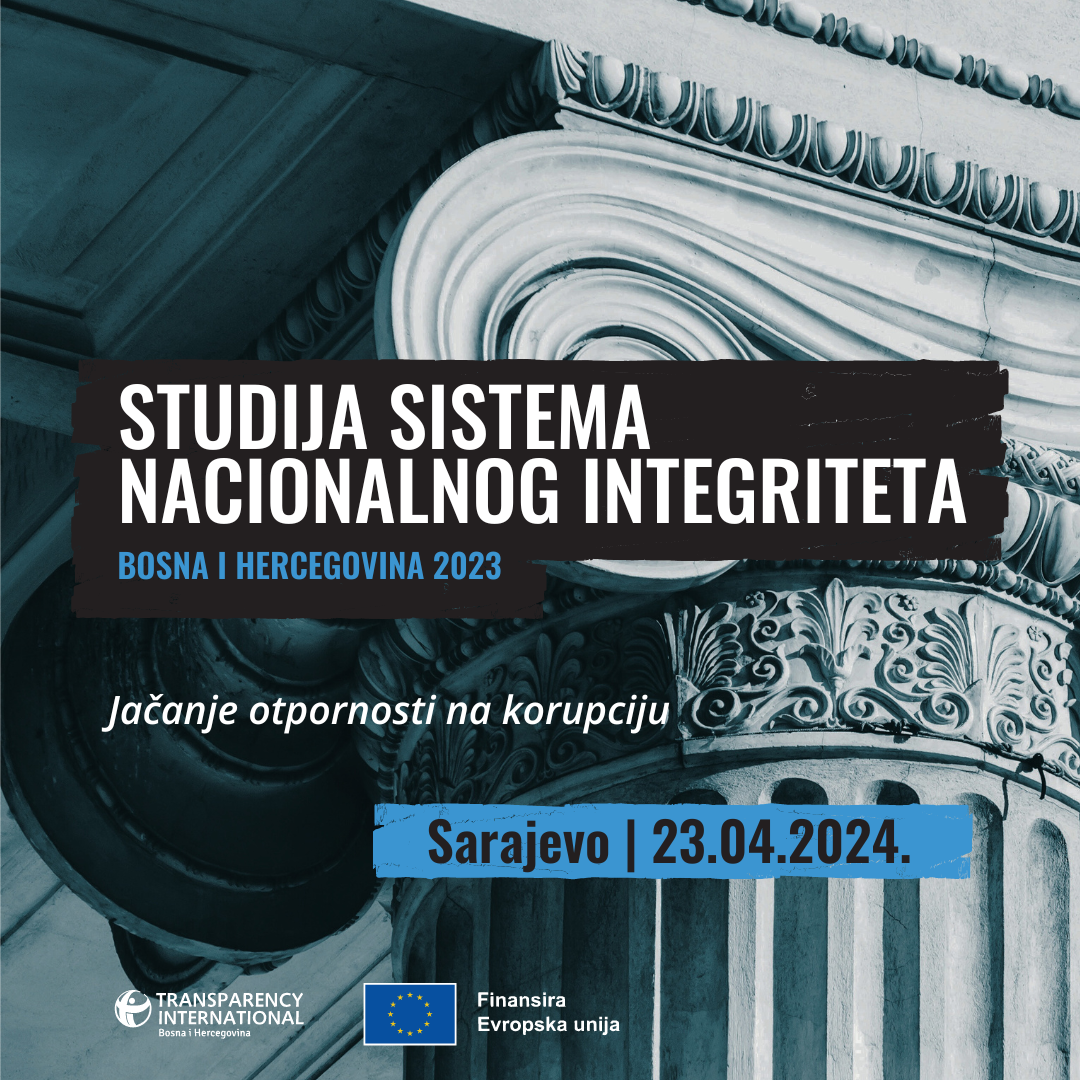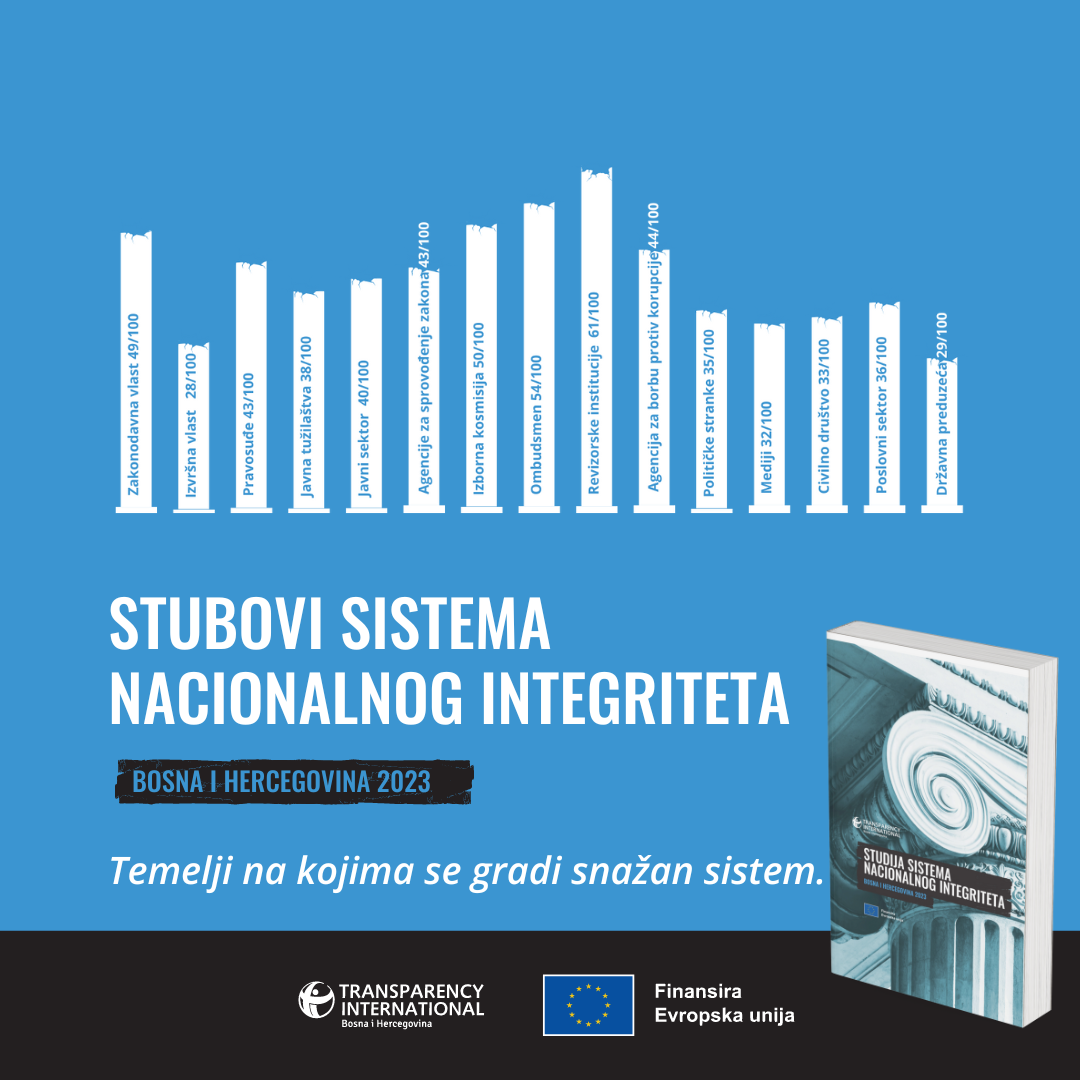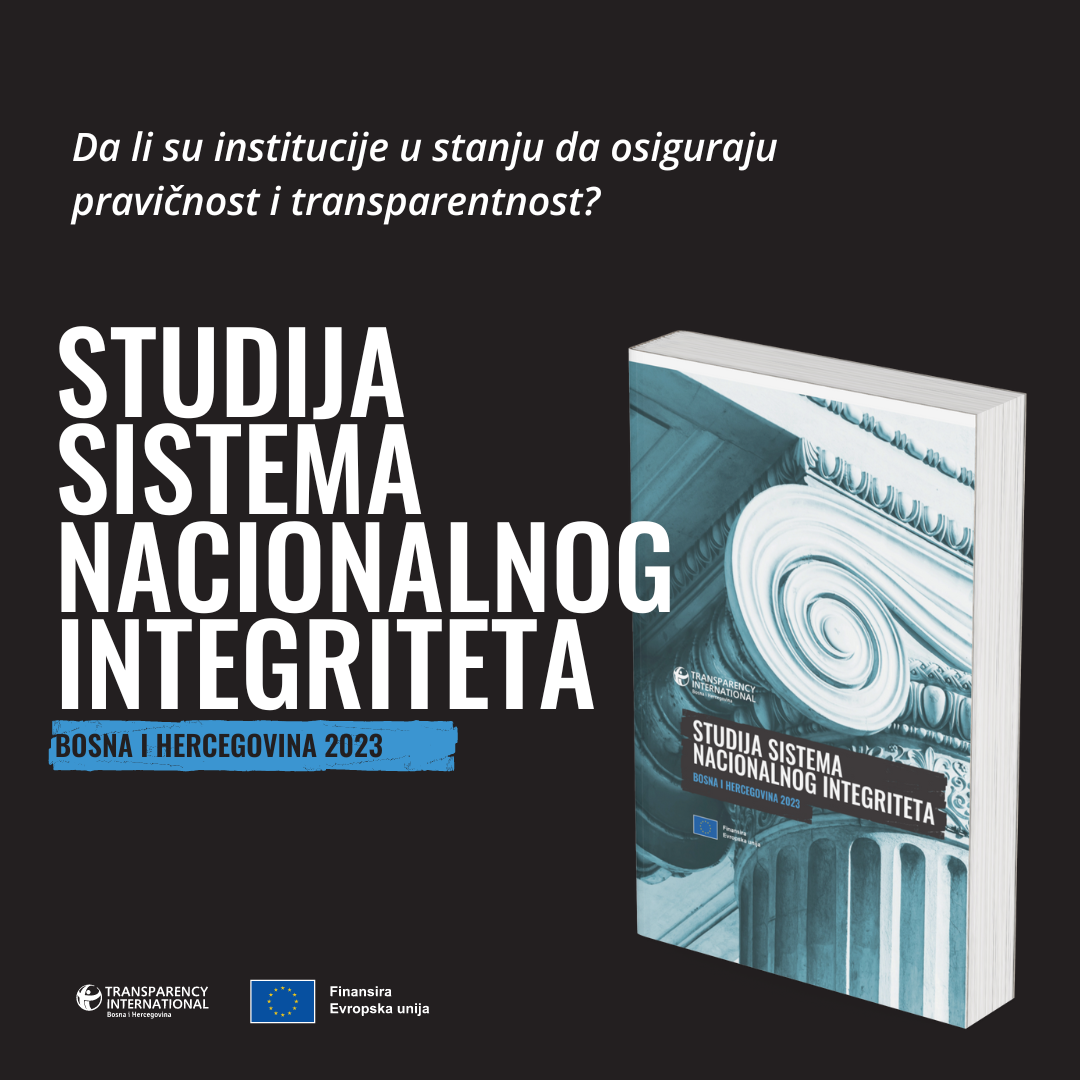TI BiH: 10.8 million BAM was spent on the election campaign. Parties continue to misuse public resources with impunity
Sarajevo, October 3, 2024 – Transparency International in Bosnia and Herzegovina presented results of the monitoring of election campaign expenses, which show that until...
Press releases ● 03 October 2024
Izvještaji za Mediae
TI BiH: 10.8 million BAM was spent on the election campaign. Parties continue to misuse public resources with impunity
Press releases ● 03 October 2024
Sarajevo, October 3, 2024 – Transparency International in Bosnia and Herzegovina presented results of the monitoring of election campaign expenses, which show that until October 1, the parties spent about 10.8 million BAM on billboards, advertisements in the media (television and print media), Meta companies ads and election rallies. The largest amount was spent by SNSD (1.6 million BAM), followed by SDA (1.3 million BAM), SDP BiH (1 million BAM), PDP (713 thousand BAM) and HDZ (643 thousand BAM). Most was spent on advertising on billboards (about 6.2 million), followed by pre-election rallies (2.6 million), while the value of advertising in the largest media is 1.6 million BAM. Additionally, according to data from the company Meta, 254,000 BAM have been spent on online ads through Facebook, Instagram, and Whatsapp so far.
These amounts represent only part of the costs, as they do not include the costs of advertising and pre-election rallies at the end of the election campaign, as well as other forms of advertising that cannot be estimated, such as the costs of Google ads, for which there is no open data. According to the new provisions of the Election Law, the parties were obliged to transfer all funds for campaign financing through a special account, and three days before the day of the election, submit to the CEC a final report on all transactions from that account, which includes sources of funding. TI BIH previously indicated that in previous years the parties reported significantly lower campaign expenses than those determined on the ground, because most did not have legal sources with which they could justify the millions.
More on the topic of financing and campaign costs in the dedicated text on Transparentno.ba
Party characteristics and signs on road opening, over 2,500 examples of misuse of public resources
In the last 3 months TI BIH observers recorded over 2570 examples that can be characterized as the use of public resources for the election campaign or as a direct violation of the election legislation. 123 complaints were submitted to the competent institutions, and the Central Election Commission has so far imposed 18 sanctions in the total amount of 115,500 BAM, based on the complaints of TI BiH. These fines mostly relate to the premature campaign, part of the reports have not yet been acted upon, while numerous cases of misuse of public resources continue to go unpunished.
TI BIH already pointed to numerous examples of indirect vote buying through the distribution of one-time subsidies, through which approximately 60 million marks were distributed in the last three months, from all levels of government. Nevertheless, the CEC took the position that all one-time payments before the elections, which the government claims were planned in the budget, do not represent misuse of public resources, so numerous applications to TI BiH were rejected. In the campaign itself, the Government of the Brčko District allocates a one-time aid of 100 BAM to all pensioners, while the Government of Herzegovina-Neretva Canton gave 1,000 BAM to 5,700 budget beneficiaries. During the campaign itself, the President of the Republic of Srpska distributed 56 contracts on the allocation of small livestock to returnees in the Una-Sana Canton, while the Government of the Zenica-Doboj Canton allocated 200 BAM for over 8,100 budget beneficiaries.
The CEC has so far received a total of 140 reports for misuse of public resources, and by the beginning of the last week of the campaign, only 7 sanctions were issued, most of which were for misuse of means of communication and posting on social networks. In one of the most recent cases, the Mayor of Banja Luka was fined for promoting the distribution of cards for free transport to pensioners, although on the same basis the CEC had previously rejected the TI BIH complaint, and then conducted proceedings again for the same matter upon the application of another entity and imposed a sanction of 15,000 BAM.
The CEC also made a controversial decision on the complaint of TI BiH against SNSD, contested by the Court of Bosnia and Herzegovina, relating to promotion of the party at a series of gatherings near Banja Luka called “Krajiško veče”. In the original decision, the CEC thought it is not problematic that the speakers at these gatherings called for voting for the candidates of this party, but after the court’s decision, in a repeated procedure, a sanction was imposed for premature campaigning. It is particularly controversial that we do not know who pays for these manifestations, held before every election and represent a standard form of SNSD campaign.
In the campaign itself, the practice of electoral promotion through infrastructure projects continued, and the value of the started and completed works in addition to several larger projects in this pre-election period amounted to 589 million BAM. TI BiH also submitted new complaints to the CEC in numerous cases where these works were presented as a success of a party, but sanctions were imposed only because of a premature campaign. One of the recent reports refers to the NES candidate in Zavidovići, whose election poster was on the trucks paving the local roads. The Mayor of Žepče opened a local road before the pre-election rally, and at the event itself there were numerous HDZ symbols, even though the Election Law clearly prohibits campaigning at institutional events.
A complaint was filed against the Minister of Health of the Bosnian-Podrinje Canton, who is also a NIP candidate for the mayor of Goražde, for promoting free examinations with the logo of a political party, while a case from the Hospital “Srbija” in Stanari was reported to the CEC, where pre-election materials of the Ujedinjena Srpska were distributed at the patient reception desk. TI BiH has already informed the public about the reports against BiH Minister of Security Nenad Nešić because of the video in which he promises the voters in Visegrad to help candidates from this municipality in competition in police agencies “regardless of whether they are from SNSD or DNS. ” The report was also filed against Milorad Dodik for his speech at a pre-election rally in which he warned voters who do not vote for his party’s candidate “that they will have reduced life chances if they need surgery.”
47 examples of abuse of children for political purposes, 79 cases of increased employment before the elections, 77 examples of providing special benefits in the form of free examinations, public transport or other public services in the pre-election period were recorded. According to TI BiH reports, 41 persons were removed from the list of presidents of election committees and their deputies who were found to be connected to political parties, while the CEC refused to remove over 160 persons for whom TI BiH submitted evidence of their connection with political parties. It is evident that technical changes to the Election Law alone did not give the expected results in practice, both in punishing the abuse of public resources and in preventing the establishment of party control over election committees.








